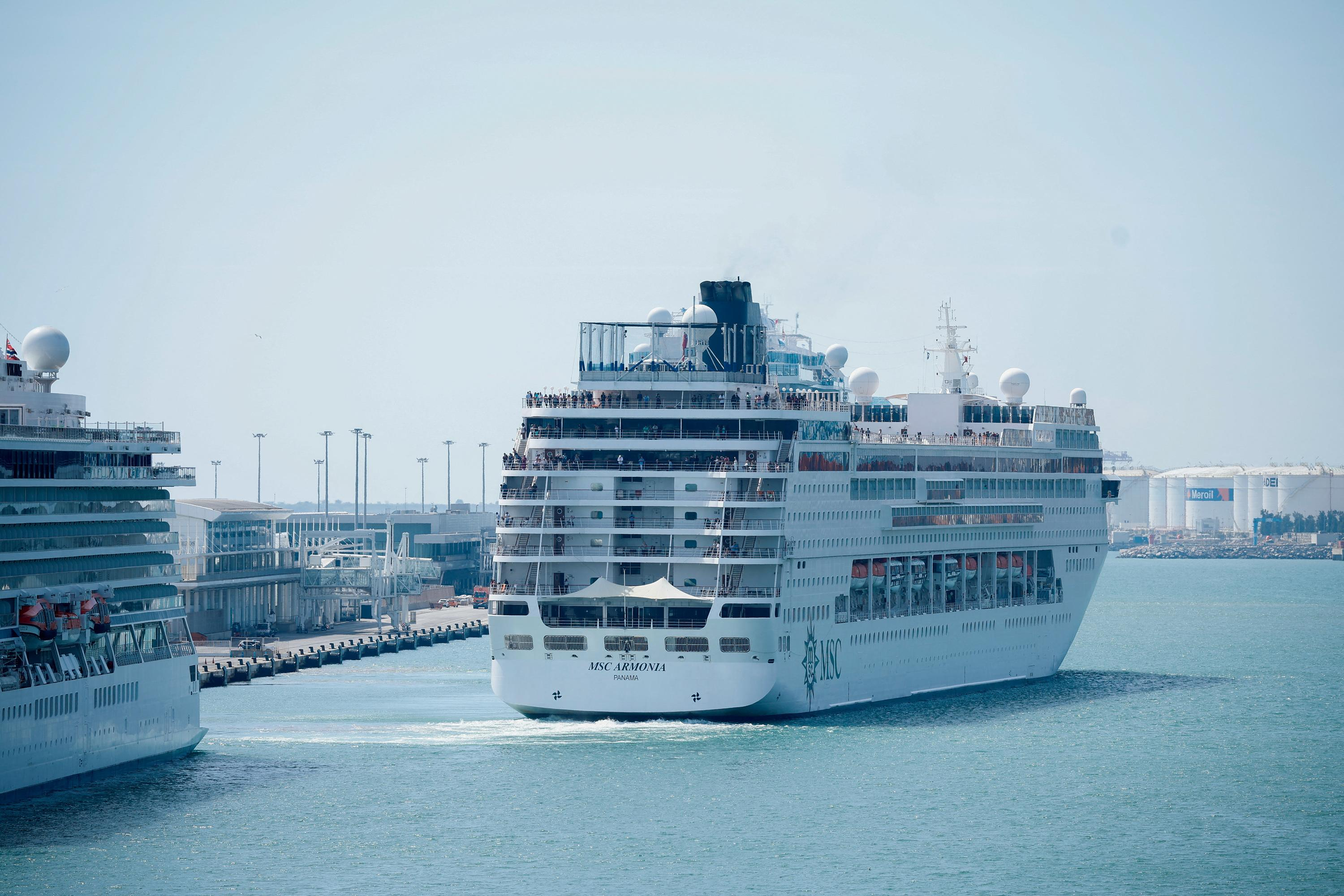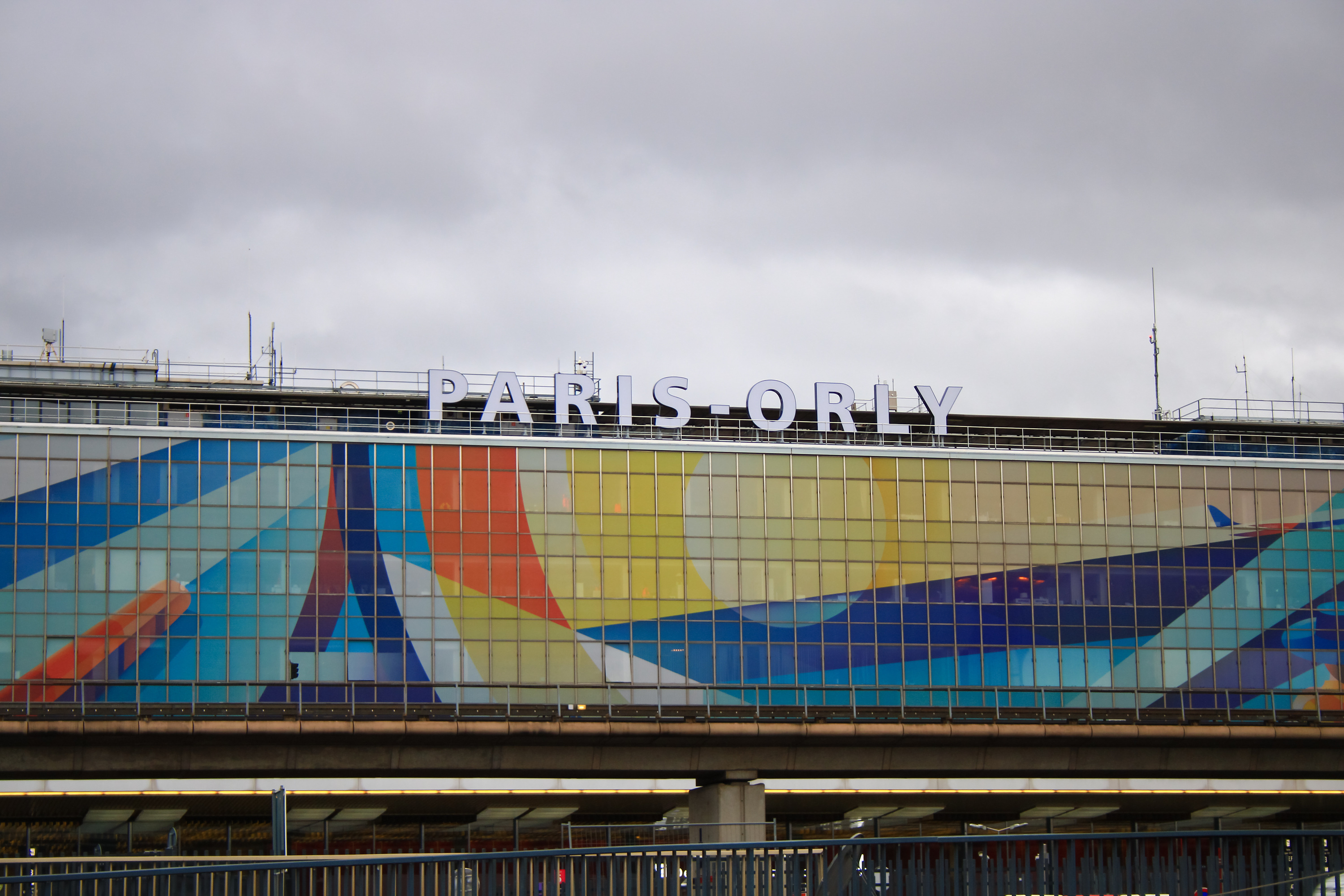Someone once wrote - that was at the time when Caroline Peters became famous nationwide with the Eifel crime series "Murder with a View" as Cologne Commissioner Sophie Haas who had been transferred to Hengasch / Liebernich district - that she could play the entire Bible without to lose a word at all. Just her face. This is of course an exaggeration. But only a little. And a bit of a shame now. Because this time we only have her voice.
Caroline Peters – born in Mainz in 1971, grew up in Cologne, trained as an actress in Saarbrücken – lives in Vienna. And is on the way to Berlin. The daughter of a psychiatrist and a literary scholar has been a Burgtheater actress in Vienna since 2004. In Berlin she will play at the Schaubühne in productions by Simon Stone, one of her favorite directors. The house is always sold out there, she says, but that's not the case in the Burgtheater after Corona. What are you worried about? For the theater that she needs, for which she burns.
Caroline Peters can be seen in cinemas starting October 20 with Justus von Dohnányi and Iris Berben in Sönke Wortmann's "Der Nachname". The new episode of her ZDF series “Colleges” will be shown on television on October 29th.
The children's books that moved me the most were those by Astrid Lindgren. I'm not so sure about the order in which they came into my life. I think Pippi Longstocking was the first thing my mother read to me. Then came "Ronja the Robber's Daughter". I thought that was absolutely fantastic, because she was so clever and could do everything herself and lived in the forest, which, strangely enough, as a child you find incredibly attractive, living in nature and in the forest.
And then came, I remember, my grandmother gave it to me for Christmas, “Brothers the Lionheart”. I was eleven or twelve then. I unpacked this and started reading and couldn't stop until I finished it. And I, like probably everyone, cried madly.
But I also felt somehow more grown up. I had read that alone, had lost the time for myself. That was really, really sad, and I stuck with it anyway, I just slept for two hours at night and continued reading straight away in the morning. That you can be so captivated by a story.
Besides, you don't encounter death that often as a child, at least not in literature. You don't deal with him, he's for stupid adults. And it was very important for me that such young children - the Lionheart brothers are children - deal with all the questions and explain to me that I was in the same boat with them and not with adults who treat you like children. That as a child I was given an adult approach to death.
From there, my interest in reading flowed seamlessly into biographies. One of the first was that of Charlie Chaplin. That must have been in the mid eighties. I remember reading it over the holidays. That was my favorite time to read anyway. We were in France, my parents had rented a holiday home and the book happened to be lying around. That was a fantastic story.
Chaplin's life and the making of film. How he came from the vaudeville theater to the silent film. Growing up in great poverty, he is one of the very first world stars and Hollywood millionaires, and an entire industry is working his way up to what we now know as the film world. How he travels across the country by train and everywhere thousands of people are standing on the platforms and waving at him. He describes very precisely how his life begins in a kind of forlornness and ends in wealth - and what that has done to him.
But maybe I should continue in chronological order. Before the novels was the phase between children's books and books for adults. For me, that became the film book phase. I was in love with the movie Casablanca starring Humphrey Bogart and Ingrid Bergman for some reason. I've read books about it non-stop. In the eighties there were these film books from Heyne Verlag with photos of the films and texts about the shooting and the life of the actors. There was endless material, I felt like there was a ton of it. And I devoured everything.
My mother then introduced me to Carl Zuckmayer's autobiography. "Like it's a piece of me." I didn't really know then that I wanted to be an actress. It kind of started in me back then. Maybe that's why I had such a soft spot for these stories, maybe that's why I was so carried away because everything was moving in this direction at the time, without me even knowing it.
Anyway, this is a fantastic book. Because you are drawn into the world of the 1920s in Berlin. What was there, which plays, which premieres, which poets performed where, how they interact with each other. And then how the Nazis came, and who then flees from them, how and where, and how they deal with the fact that they are banned authors, and who is still friends with whom, and who betrays whom.
Unfortunately, Zuckmayer got completely lost today, but "As if it were a piece of me" is still incredibly passionate and rousing. I read that again a few years ago and was just as gripped and carried away as I was then.
And then came drama school. I could only read during the holidays. But then like big hams and novels. And I've become a big fan of Thomas Wolfe. And from "There is no way back". This is a novel that is also set in Berlin in the 1930s and tells the biography of an artist who travels through Germany shortly after Austria's "annexation". Everywhere he says what he likes about Germany and what disappears, will be destroyed. And he can't believe it.
He goes back to America, although his heart actually beats for the wild European artistry. But that's eating itself. Thomas Wolfe writes so poignantly, so monumentally. You can see everything in front of you and still have all the pictures in your head years later. "There's no way back" was the first thing I had to put on top of every move because I was always leafing through it and really liked certain passages.
At some point I read everything that was so popular. "American Psycho" for example. Not much of it got me that deeply. With some I still remember that it grabbed me, swept me along without even knowing exactly why it actually happened.
That's what happened to me with Jonathan Franzen's “Freiheit”. When I started I could hardly leave the house for three days because I just wanted to keep reading. But what fascinated me about it? I remember the reading experience very well, but the novel very badly. I remember that of course it was about freedom and women's lives. It's funny that it left so little trace. Maybe I should read it again.
When I started to work more and more in Vienna and then gradually moved here, I discovered Ingeborg Bachmann for myself. Because you can read this city with her. She writes so incredibly much about this city, how it is structured, which families count here and how. I thought "Malina" was great.
What was important to me, however, was the death cycle. It's not a finished work. The cycle has appeared in quite different ways. Piper has always tried to put all the stories together in one volume. I've never read it coherently, just poked around in it. It's like a labyrinth of stories that are somehow all connected and where a character from a story you read three years earlier suddenly appears again and again.
This creates an image of Vienna and how it developed in the 1950s, 1960s and 1970s. How the city developed when the whole Austro-Hungarian Empire no longer clung to it. There's a fantastic story there. It's called "Requiem for Fanny Goldmann". And it's about an actress at the Burgtheater and how she's doing, what kind of life she leads.
Of course, that particularly interested me. There are all the places I just walked by myself. I had so much fun visiting the places that Ingeborg Bachmann describes.
Back to adult reading. I had an experience similar to that with Ingeborg Bachmann a few years later with Edmund de Waal's "Hare with the Amber Eyes". That fascinated me incredibly because of the way it was told, it's a documentary novel. And because of the building where the story takes place, where the Jewish Ephrussi family lives, whose descendant is de Waal. And where the Nazis set up their headquarters.
It's a few houses away from the Burgtheater. I always stopped by while I was reading that and was able to take a good look at everything. The frieze on the ceiling described in the book can be seen from the street if you peer in at an angle. Then there was an exhibition about it in Vienna's Jewish Museum. And Edmund de Waal was allowed to go into the magazine for the Kunsthistorisches Museum and curate an exhibition at his discretion and thus tell something about art history.
That was very good for me. To open up the city in another country with books and pictures, which is very new and strange to me, to grasp it. And finding reality again and again in the book. And vice versa.
I just had a very special experience with Annie Ernaux's Shame. I read that because I was supposed to present it at the Ruhr Festival in Recklinghausen. One of the reasons why “The Shame” is such an interesting book is that Annie Ernaux describes it so simply and factually. And thus makes so much tangible.
What her childhood home looked like. What the parental homes of their classmates looked like. Ernaux translates a life into neutral numbers - what does that mean when you already have a toilet with a vent while the others are still using the outhouse.
For me, when I read it for myself, it was very sober and interesting and great how closely she can observe herself and her former life. And then I was in Recklinghausen. 500 people were there, all of an age that you could assume they had consciously experienced the post-war period as children. So the time in which "The Shame" takes place.
But we weren't in the French, but in the German provinces, where an incredible amount had been destroyed in the Second World War. People almost cried. They were totally touched by the story. Afterwards, I was supposed to be autographing the book in the foyer. I'm not the author at all, I said. But the touch of the subject was so strong that I was practically standing in Ernaux's shoes.
The bookseller that night was completely surprised. He could have sold every single listener a book, but he didn't have enough with him. Everyone who spoke to me would have liked to talk for hours about themselves and their experiences, stimulated by this text. That touched me very much. That such an intellectually hyped book can speak to people so directly and emotionally.

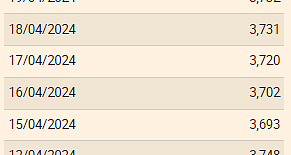 The Euribor today remains at 3.734%
The Euribor today remains at 3.734% Germany: the trial of an AfD leader, accused of chanting a Nazi slogan, resumes this Tuesday
Germany: the trial of an AfD leader, accused of chanting a Nazi slogan, resumes this Tuesday New York: at Columbia University, the anti-Semitic drift of pro-Palestinian demonstrations
New York: at Columbia University, the anti-Semitic drift of pro-Palestinian demonstrations What is Akila, the mission in which the Charles de Gaulle is participating under NATO command?
What is Akila, the mission in which the Charles de Gaulle is participating under NATO command? What High Blood Pressure Does to Your Body (And Why It Should Be Treated)
What High Blood Pressure Does to Your Body (And Why It Should Be Treated) Vaccination in France has progressed in 2023, rejoices Public Health France
Vaccination in France has progressed in 2023, rejoices Public Health France Food additives suspected of promoting cardiovascular diseases
Food additives suspected of promoting cardiovascular diseases “Even morphine doesn’t work”: Léane, 17, victim of the adverse effects of an antibiotic
“Even morphine doesn’t work”: Léane, 17, victim of the adverse effects of an antibiotic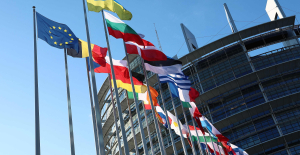 MEPs validate reform of EU budgetary rules
MEPs validate reform of EU budgetary rules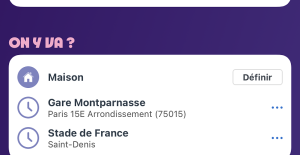 “Public Transport Paris 2024”, the application for Olympic Games spectators, is available
“Public Transport Paris 2024”, the application for Olympic Games spectators, is available Spotify goes green in the first quarter and sees its number of paying subscribers increase
Spotify goes green in the first quarter and sees its number of paying subscribers increase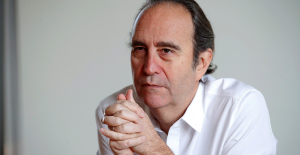 Xavier Niel finalizes the sale of his shares in the Le Monde group to an independent fund
Xavier Niel finalizes the sale of his shares in the Le Monde group to an independent fund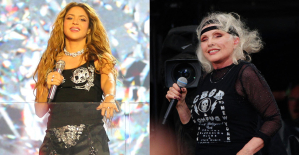 Owner of Blondie and Shakira catalogs in favor of $1.5 billion offer
Owner of Blondie and Shakira catalogs in favor of $1.5 billion offer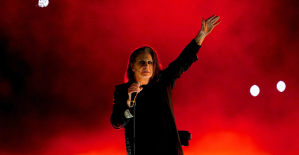 Cher et Ozzy Osbourne rejoignent le Rock and Roll Hall of Fame
Cher et Ozzy Osbourne rejoignent le Rock and Roll Hall of Fame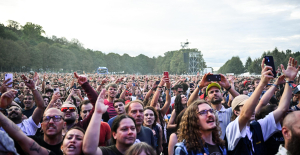 Three months before the Olympic Games, festivals and concert halls fear paying the price
Three months before the Olympic Games, festivals and concert halls fear paying the price With Brigitte Macron, Aya Nakamura sows new clues about her participation in the Olympics
With Brigitte Macron, Aya Nakamura sows new clues about her participation in the Olympics Skoda Kodiaq 2024: a 'beast' plug-in hybrid SUV
Skoda Kodiaq 2024: a 'beast' plug-in hybrid SUV Tesla launches a new Model Y with 600 km of autonomy at a "more accessible price"
Tesla launches a new Model Y with 600 km of autonomy at a "more accessible price" The 10 best-selling cars in March 2024 in Spain: sales fall due to Easter
The 10 best-selling cars in March 2024 in Spain: sales fall due to Easter A private jet company buys more than 100 flying cars
A private jet company buys more than 100 flying cars This is how housing prices have changed in Spain in the last decade
This is how housing prices have changed in Spain in the last decade The home mortgage firm drops 10% in January and interest soars to 3.46%
The home mortgage firm drops 10% in January and interest soars to 3.46% The jewel of the Rocío de Nagüeles urbanization: a dream villa in Marbella
The jewel of the Rocío de Nagüeles urbanization: a dream villa in Marbella Rental prices grow by 7.3% in February: where does it go up and where does it go down?
Rental prices grow by 7.3% in February: where does it go up and where does it go down? Europeans: “All those who claim that we don’t need Europe are liars”, criticizes Bayrou
Europeans: “All those who claim that we don’t need Europe are liars”, criticizes Bayrou With the promise of a “real burst of authority”, Gabriel Attal provokes the ire of the opposition
With the promise of a “real burst of authority”, Gabriel Attal provokes the ire of the opposition Europeans: the schedule of debates to follow between now and June 9
Europeans: the schedule of debates to follow between now and June 9 Europeans: “In France, there is a left and there is a right,” assures Bellamy
Europeans: “In France, there is a left and there is a right,” assures Bellamy These French cities that will boycott the World Cup in Qatar
These French cities that will boycott the World Cup in Qatar Serie A: Bologna surprises AS Rome in the race for the C1
Serie A: Bologna surprises AS Rome in the race for the C1 Serie A: Marcus Thuram king of Italy, end of the debate for the position of number 9 with the Blues?
Serie A: Marcus Thuram king of Italy, end of the debate for the position of number 9 with the Blues? Milan AC-Inter Milan: Thuram and Pavard impeccable, Hernandez helpless… The tops and flops of the derby
Milan AC-Inter Milan: Thuram and Pavard impeccable, Hernandez helpless… The tops and flops of the derby Ligue 2: Auxerre leader, Bordeaux in crisis, play-offs... 5 questions about an exciting end of the season
Ligue 2: Auxerre leader, Bordeaux in crisis, play-offs... 5 questions about an exciting end of the season




